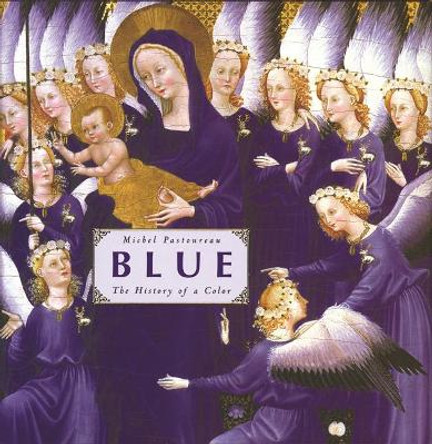Description
The oldest discovered statue, fashioned some fifteen to twenty thousand years ago, is of a bear. The lion was not always king. From antiquity to the Middle Ages, the bear's centrality in cults and mythologies left traces in European languages, literatures, and legends from the Slavic East to Celtic Britain. Historian Michel Pastoureau considers how this once venerated creature was deposed by the advent of Christianity and continued to sink lower in the symbolic bestiary before rising again in Pyrrhic triumph as a popular toy.
The early Church was threatened by pagan legends of the bear's power, among them a widespread belief that male bears were sexually attracted to women and would violate them, producing half-bear, half-human beings-invincible warriors who founded royal lines. Marked for death by the clergy, bears were massacred. During the Renaissance, the demonic prestige bears had been assigned in biblical allegory was lost to the goat, ass, bat, and owl, who were the devil's new familiars, while the lion was crowned as the symbol of nobility. Once the undefeated champions of the Roman arena, prized in princely menageries, bears became entertainers in the marketplace, trained to perform humiliating tricks or muzzled and devoured by packs of dogs for the amusement of humans. By the early twentieth century, however, the bear would return from exile, making its way into the hearts of children everywhere as the teddy bear.
This compelling history reminds us that men and bears have always been inseparable, united by a kinship that gradually moved from nature to culture-a bond that continues to this day.
Pastoureau brings erudition and expertise to his subject as he traces how the bear was a venerated figure in pagan Europe, but dethroned as king of beasts by Christianity. He makes an important contribution by providing a long history of the bear, an animal whose symbolic importance is unknown by many. Readers will be treated to an elegant review of medieval history and theology, as well as informed discussions about the art on cave walls, the boundary between humans and animals in Greek myth, the philosophical foundations of natural history from Aristotle to Buffon, and a wealth of information about popular culture during the Middle Ages and Renaissance. -- Matthew Senior, Oberlin College
About the Author
Michel Pastoureau is a historian and Director of Studies at l'Ecole pratique des hautes etudes (Sorbonne) and at l'Ecole pratique des hautes etudes en sciences sociales.
Reviews
Pastoureau brings erudition and expertise to his subject as he traces how the bear was a venerated figure in pagan Europe, but dethroned as king of beasts by Christianity. He makes an important contribution by providing a long history of the bear, an animal whose symbolic importance is unknown by many. Readers will be treated to an elegant review of medieval history and theology, as well as informed discussions about the art on cave walls, the boundary between humans and animals in Greek myth, the philosophical foundations of natural history from Aristotle to Buffon, and a wealth of information about popular culture during the Middle Ages and Renaissance. -- Matthew Senior, Oberlin College
The scholarship displayed in this groundbreaking study is the best kind: deep, broad, imaginative. Medievalist Pastoureau takes on the history of the bear, that exceptional animal once said to most resemble man. Once king of the beasts in the West, at times even god, the bear was hunted down in Europe from the time of Charlemagne (d. 814) and its image systematically degraded. By the end of the 12th century, the bear's place as king of the beasts had been usurped by the lion. Henceforth the bear was largely a figure of ridicule. How did this happen? What purposes did the change serve? Pastoureau uses evidence from history, textual analysis, heraldry, anthropology, and iconography to produce an eclectic study that not only reads like a dream but opens avenues for future research. -- David Keymer * Library Journal *
William Kotzwinkle (The Bear Went Over the Mountain) and Bella Pollen (The Summer of the Bear) have already demonstrated the appeal of ursine protagonists. But their treatment of our bruinish cousins is nowhere near as encyclopedic as that of Michel Pastoureau, who starts his survey in prehistory and rambles down to the present, tracing the biology, allure, and legends of bears right up to the cuddly teddy bear that represents a hearthside version of the former king of beasts. * Barnes & Noble Review *
The animal that dominated the forests of prehistoric and early medieval Europe--and the collective unconscious of Europeans--was, naturally, the largest and strongest creature there, the brown bear...Uncannily human-like in its diet, supposed sexual tastes and ability to stand upright, the bear was seen as an intermediary creature dwelling between the human and animal worlds. It appears in countless myths: Paris, who stole away Helen and sparked the Trojan War, was raised by a she-bear whose milk gave him a taste for abduction. And it has always provided personal names in various European languages, from the epic hero Beowulf (meaning bee-wolf, meaning honey-loving bear) to tennis ace Bjorn (Bear) Borg. What drove Europe's king of beasts from his throne and demoted him to the pitiful dancing entertainer of the late Middle Ages is the core of Pastoureau's engrossing book. And the short answer is Christianity. -- Brian Bethune * Maclean's *
The chief subject of Pastoureau's fascinating book...is not the prominent place bears once held in the human imagination but the manner in which they fell from that place. -- Christopher R. Beha * New York Times Book Review *
Awards
Nominated for FAF Translation Prize 2011.
Book Information
ISBN 9780674047822
Author Michel Pastoureau
Format Hardback
Page Count 384
Imprint The Belknap Press
Publisher Harvard University Press










